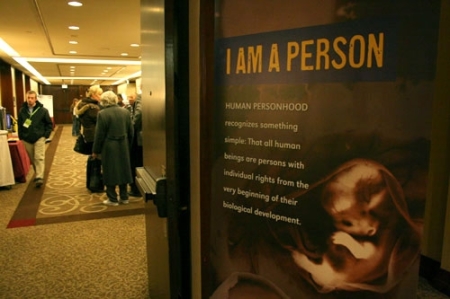Unborn Babies Are Human Beings, Alabama Supreme Court Notes in Ruling

The Alabama Supreme Court ruled Friday that a woman who lost her baby during her pregnancy as a result of medical malpractice can sue the doctor for wrongful death because the unborn child is a human being.
The Court unanimously reversed a County judge's order that said Alabama resident Kimberly Stinnett, who in 2012 lost her child because an OB-GYN administered an abortion-inducing drug during her pregnancy thinking Stinnett had a ectopic pregnancy when she did not, had no claim under Alabama's Wrongful Death Act. As AL.com reported, in a concurring opinion Justice Tom Parker wrote that the unborn are indeed protected by the state's wrongful-death statute because life begins at conception, noting that such protections have not always been guaranteed in Alabama.
Andrew A. Yerbey, senior policy counsel at the Alabama Policy Institute, told The Christian Post in a Thursday phone interview that it is important to see this acknowledgement set forth in case law.
"For years it has been law that if you kill a mother who is pregnant then you can be held liable for both the death of the mother and of the unborn child," he said, adding that it is also good to see the reaffirmation of the principle that unborn children are human beings.
CP asked Yerbey why this matters in light of the failure of "personhood amendments," initiatives that legally define unborn children as full persons with constitutional rights, failing to gain traction in several states where they have been put on the ballot.
To the extent people recognize the conflict between fetal homicide and abortion, "the better for the pro-life cause," Yerbey said.
"It's always important if only for the reason that it brings this collision back into the minds and the consciences of the American people," he added, yet emphasizing that in no way would he advocate people who have had abortions be charged under the wrongful-death law.
Alabama's Wrongful Death Act does grant immunity from criminal prosecution to physicians who make an "unintentional error causing the death of a pre-viable fetus." Yet the County judge, based on previous rulings, took it a step further to include immunity from civil lawsuits, another move the Supreme Court rejected.
"The use of the viability standard established in Roe [v. Wade] is incoherent as it relates to wrongful-death law because, among other reasons, life begins at the moment of conception. The fact that life begins at conception is beyond refutation," Judge Parker wrote in the ruling.
"Members of the judicial branch of Alabama should do all within their power to dutifully ensure that the laws of Alabama are applied equally to protect the most vulnerable members of our society, both born and unborn," he added.
Right-to-life advocates applauded the Alabama Court's decision. Liberty Counsel's Mat Staver hailed the ruling's clear statement in favor of unborn life.
"The womb should be the safest place for a child and it must be legally protected. It's time to turn the tables on Roe v. Wade," he said.




















